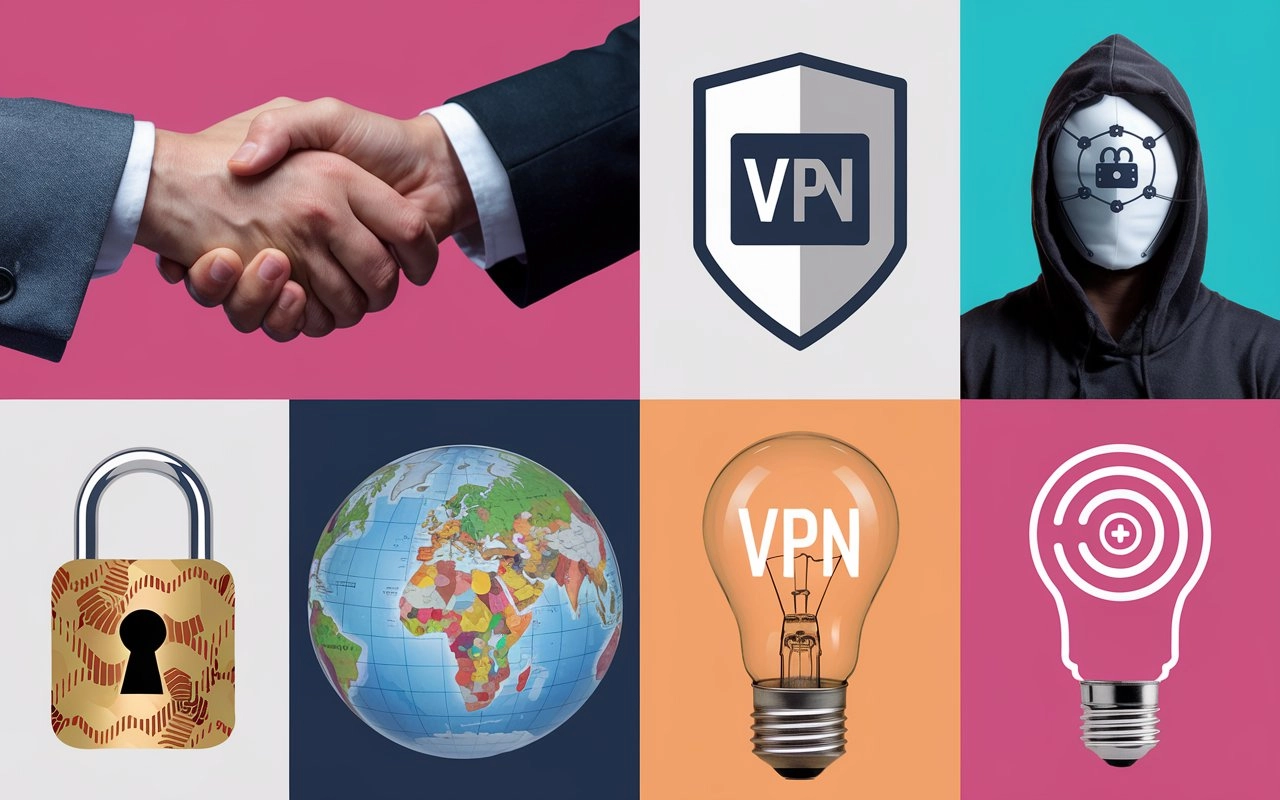Ethical Issues of Using VPN

In today's world, where the Internet is a huge universe of information, access to many sites and services can be limited due to your location. This is where VPN comes into play. With its help, you can easily bypass geo-restrictions and access the desired content. But how ethical is it? Let's figure it out.
What do you need to know about VPN and digital rights compliance?
A VPN masks your location, as if you were putting on a digital mask and saying that you are, for example, in another country. This opens up access to content that would otherwise be inaccessible to you. But the question is: is this right? Or are there pitfalls?
Ethical aspects of using VPN:
- Bypassing licensing restrictions. When you use a VPN to watch prohibited content that is, according to the rules, only available in another country, this can be considered a violation of the agreements between copyright holders and services. Sort of like sneaking into someone else's party without an invitation — On the one hand, it's cool, on the other, it's not entirely fair.
- Copyright issues. If content is specifically blocked in your region, then by bypassing these restrictions, you are in violation of the rights of those who own this content. It's like someone took your photo and posted it on social networks without permission.
- Consequences for other users. When many people use VPNs to bypass blocking, this can affect other users who legally access the content. For example, services can raise subscription prices or tighten security measures, which will ultimately affect everyone.
- Freedom of access to information. On the other hand, VPNs help bypass censorship and gain access to important information that may be blocked for political or religious reasons. In this case, the use of a VPN can be considered a means of protecting freedom of speech and the right to information.
Legal and social consequences of using a VPN:
- Legal risks. In some countries, using a VPN to bypass restrictions is generally prohibited. Therefore, if you are caught doing this, the consequences can be very unpleasant - from fines to blocking access to the network.
- Ethical dilemma. The question of the ethics of using a VPN does not have a clear answer. In some cases, it can be justified by the fight for freedom and access to information, in others - fraught with violation of other people's rights and the consequences associated with it.
How not to violate the boundaries of laws and ethics when using a VPN?
Examples of ethical use of VPN, with which everyone can compare their experience of using VPN and draw conclusions:
- Protection of confidential data. Using a VPN to protect your personal data, especially in public Wi-Fi networks, is a great example of ethical use. VPN encrypts your Internet traffic, protecting it from cybercriminals.
- Protection from surveillance. In some countries, the government may spy on citizens and censor the Internet. Using a VPN helps to bypass censorship and protect your privacy in such conditions, which can also be considered ethical from the point of view of the freedoms of a particular user.
- Supporting the right to free access to information. VPNs can and should be used in countries with strict censorship to get to truthful information that is not directly accessible. This is relevant for conscientious people who fight for their rights and freedoms. But in such circumstances, you need to objectively consider the associated risks.
- Remote access to the company network. Employers often use VPNs to provide their employees with secure access to the corporate network from home or on a business trip. This helps protect company data and maintain its confidentiality.
VPN is a powerful tool that helps bypass restrictions on the Internet. But its use raises questions not only from a legal point of view, but also from a moral point of view. Everyone must decide for themselves how justified the use of VPN is in certain situations, and what consequences they are ready to accept.
Private VPN server: high-quality, reliable and legal service
To avoid getting stuck in moral contemplation, it is worth choosing a corporate VPN or a private VPN server - a great option if you want to protect your data, and not just bypass blocking. Such a VPN gives you full control over your actions on the network and does not violate laws and other people's rights.
You can learn more about private VPN servers and buy them on Private VPN server. In the FAQ section you will find answers to popular questions about such servers, and articles about VPN will provide general information about similar products on the digital market.